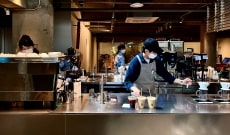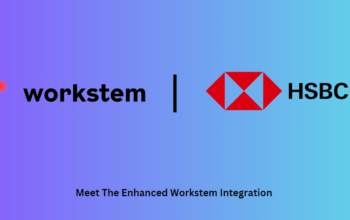When people mention cloud computing, this refers to the delivery of a variety of computing services—such as servers, storage, databases, analytics, and much more—over the Internet as opposed to a company’s own devices. In various industries, cloud-based technology has helped spur innovation, allowed flexible resource allocation, and also made it easier for businesses to scale up.
For the food & beverage (F&B) industry specifically, cloud-based technology has helped companies easily collate reams of data, which can be helpful when it comes to tracking the life cycle of various products. As a whole, cloud-based technology has helped the F&B industry streamline its various processes and requirements, enabling them to focus on creating a better customer experience.
Yet there are various, more specific ways the F&B industry can better harness cloud-based tech. The article below will go over exactly how.
Expand technical capabilities to multiple sites
One of the most notable benefits of the cloud is that it makes it much easier to provide tech support and capabilities to multiple locations, without needing to put up a complex IT infrastructure on-site. Different restaurant branches can then upload site data to a singular cloud and request technical support as needed. For example, a site manager that needs help debugging payroll software can simply send a report on the breakdown remotely, then have the bug fixed from afar without them needing to do anything.
The use of remote reporting is especially useful for remote areas where on-site IT support can be difficult to establish due to logistical or financial factors. Cloud-based tech enables top-notch assistance for various restaurant branches, without management or IT having to take time out of their busy schedule to be there.
Better organize employee shifts and leaves
The F&B industry is notorious for having to handle employees on shifting schedules, thanks to the long hours involved. Additionally, peak seasons such as Christmas and the summertime may generate even greater business than usual, making it a necessity to hire new hands on a contractual basis. All of this adds an additional layer of difficulty to tracking employee shifts and leaves, in turn also making it harder to accurately calculate wages and other employee-related expenses.
Fortunately, various cloud-based solutions have emerged to take the problem off the manager’s hands. For example, Workstem is able to offer a streamlined software solution meant to reduce costly payroll errors.
Using the cloud, Workstem’s software offers a scalable centralized hub meant to collate data such as employee profiles, breakdowns of their pay, and even attendance records.
Workstem’s use of cloud-based technology makes it so that managers can easily view hours rendered by their staff, even from a remote location. This allows them to cut down on the time spent attending to staff concerns and frees up more time to focus on what their customers really need.
Reduce manual error on the payroll
Speaking of attendance data, it pays to remember that it is often linked to payroll. Therefore, keeping a better track record of attendance can go a long way in guaranteeing there are no discrepancies in an employee’s pay. It also helps that software solutions will also automate pay calculations, reducing the potential for human error.
Moreover, the attendance function on Workstem can not only help capture accurate timesheets for employees of different statuses but also export the report that can let you have full visibility over who’s employed for four weeks or more and work at least 18 hours a week. This becomes especially important considering Hong Kong’s Regulation 418. Having a cloud-based solution can factor in the different stipulations per employee type, reducing the guesswork for HR.
Better record keeping of past transactions
Restaurants and other venues handling a large volume of transactions know all too well the feeling of getting lost in an avalanche of details. Unfortunately, missing the date on one order or even misplacing a decimal in a bill total can mess up accounting tremendously.
Cloud technology sees to it that information is stored not just at a scalable storage facility, but securely as well. Cloud is secure because as it is stored in multiple servers away from the site (or restaurant, in the case of the F&B industry), hackers will have to corrupt more than one entry point for the data to disappear. This as opposed to storing all data on a single computer, which has a higher chance of getting hacked or simply malfunctioning.
At the end of the day, the F&B industry will need any advantage they can get as the COVID-19 pandemic forever changes what it means to serve their customers. Leveraging the capabilities of the cloud is an option that is as easy as it is necessary.
Read More:
Why Retailers Should Move to an HR Software Solution
Do You Need a Partner in the Tech Industry?
Can an Employer Deduct Wages Because an Employee is Late for Work?






![[418 Guide] Ordinance 418 And Continuous Contract](https://www.workstem.com/wp-content/uploads/2023/08/Untitled-design-min-350x220.png)
